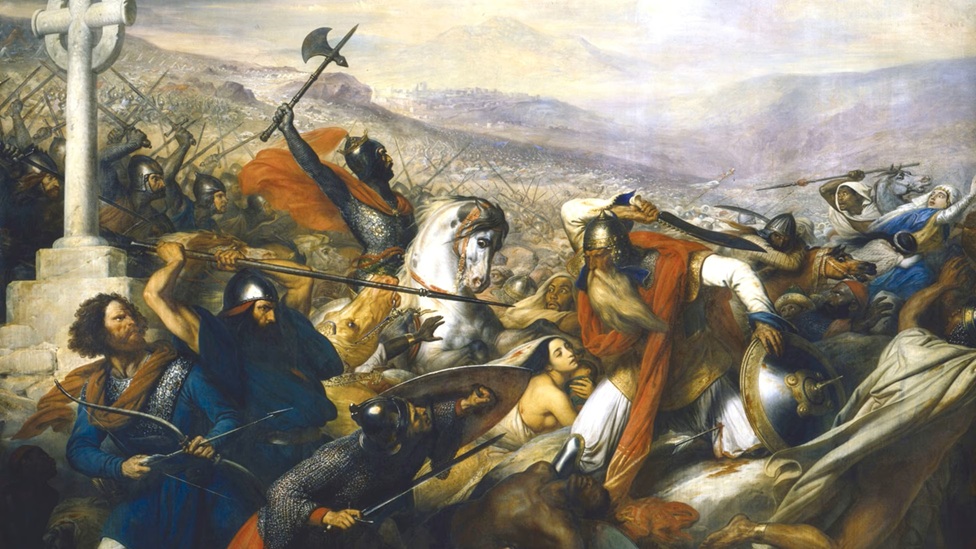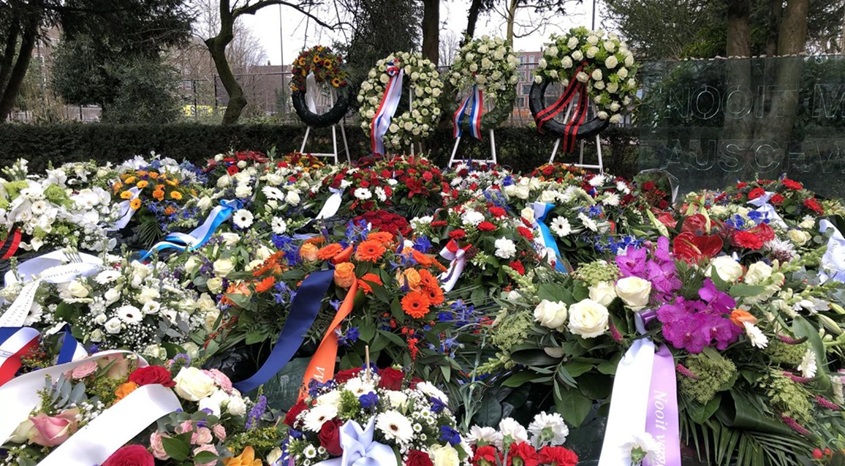
Germany’s chief prosecutor has issued an international arrest warrant for one of Syria’s most senior military officials, lawyers said Friday, in a landmark step for legal efforts against members of President Bashar al-Assad’s security apparatus.
The move against Jamil Hassan, head of Syria’s powerful Air Force Intelligence Directorate, marks an important milestone for prosecutors and other lawyers who are trying to bring senior members of Assad’s security apparatus to trial in Europe on charges of war crimes.
The detention centers run by Air Force Intelligence, where thousands are believed to have died because of torture or neglect, are among the most notorious in Syria. The charges filed with Germany’s Federal Court of Justice claim that Hassan had command responsibility over Air Force Intelligence facilities and that he must have known of the abuse.
With Syria’s military on a path to victory in the country’s long civil conflict and few indications that those responsible for alleged war crimes will be tried at an international tribunal, lawyers have turned to the principle of universal jurisdiction, which allows national courts to investigate certain international crimes. Most cases brought so far focus on a culture of torture and abuse inside government-run detention centers.
Although few suspects, if any, are likely to stand trial in European courts, those bringing the cases hope that they will cast a chill throughout the upper echelons of the Syrian government, making it increasingly tough to travel outside of friendly capitals and dogging suspects with a permanent threat of arrest.
A spokeswoman for the prosecutor’s office declined to comment publicly on the Hassan case but did not deny that an arrest warrant had been issued.
The German arrest warrant is likely to be extended as an Interpol red notice, lawyers said, which would require the organization’s member states to arrest Hassan on arrival in their territories and extradite him to Germany.
“For us, this is huge. Historical,” said Patrick Kroker, a lawyer with the European Center for Constitutional and Human Rights, a Berlin-based legal organization that brought the suit, along with several Syrian lawyers. “That this arrest warrant has been signed off by the highest criminal court in Germany shows that they deem the evidence presented to the prosecutor is strong enough to merit urgent suspicion of his involvement.”
Often described as a member of Assad’s inner circle, Hassan has led Syria’s Air Force Intelligence since 2009. The U.S. Treasury has frozen the general’s assets because of his role in the crackdown that followed Syria’s 2011 uprising.
Recently released court documents from a parallel suit brought against the Syrian military for its alleged targeted assassination of the American journalist Marie Colvin shed light on the state’s uncompromising effort to extinguish dissent from the start of the uprising, arresting and interrogating many who had joined the demonstrations or signaled support through their Facebook accounts.
In a 2016 interview, Hassan suggested that the state’s tactics should have been tougher still, suggesting that the Syrian army should have used all-out force to crush the uprising from the beginning.
Former inmates from the largest Air Force Intelligence branch in Damascus have described interrogations replete with sadism. One man said that a cellmate’s eye was almost gouged out. Another had scars along his abdomen and groin line from where he said interrogators had dripped molten plastic when he refused to give up the names of friends who had joined demonstrations.
Reacting to the news Friday, survivors of several Air Force Intelligence branches described cautious optimism, and relief. “This announcement hasn’t changed the world, but it has given me something like hope,” said one man, who spoke on the condition of anonymity out of concern for the safety of relatives still in Syria.
He said the news had made him recall a night while in custody when the guards shouted at the inmates to look away and then placed a body among them.
“It was my friend. I sat with him until dawn, talking like he was still with me and telling him that they would not get away with this. Maybe today we are one step closer to that promise,” the former detainee recalled.
The Syrian government did not respond to a request for comment on the German lawsuit or historical allegations of torture. Assad has previously described photographs of bodies in government-run prisons as “fake news.”
“You can forge anything these days,” he told Yahoo News in an interview last year.
Kroker said the suit included evidence of the organization’s command structure, as well as high-resolution images showing the bodies of men and women who had been tortured to death inside the detention centers.
Scott Gilmore, a Washington-based attorney with the Center for Justice and Accountability, which has also brought cases against Syrian military officials on behalf of torture survivors, described Friday’s news as a “decisive moment in the push for Syrian accountability.”
“Even if Hassan is not extradited and tried, a cloud will hang over him and restrict his international movements,” he said. “The arrest sends a powerful signal that Germany, which is now the seat of the Syrian diaspora, will pursue the regime leadership for mass atrocity crimes regardless of Assad’s clinging to power.”





